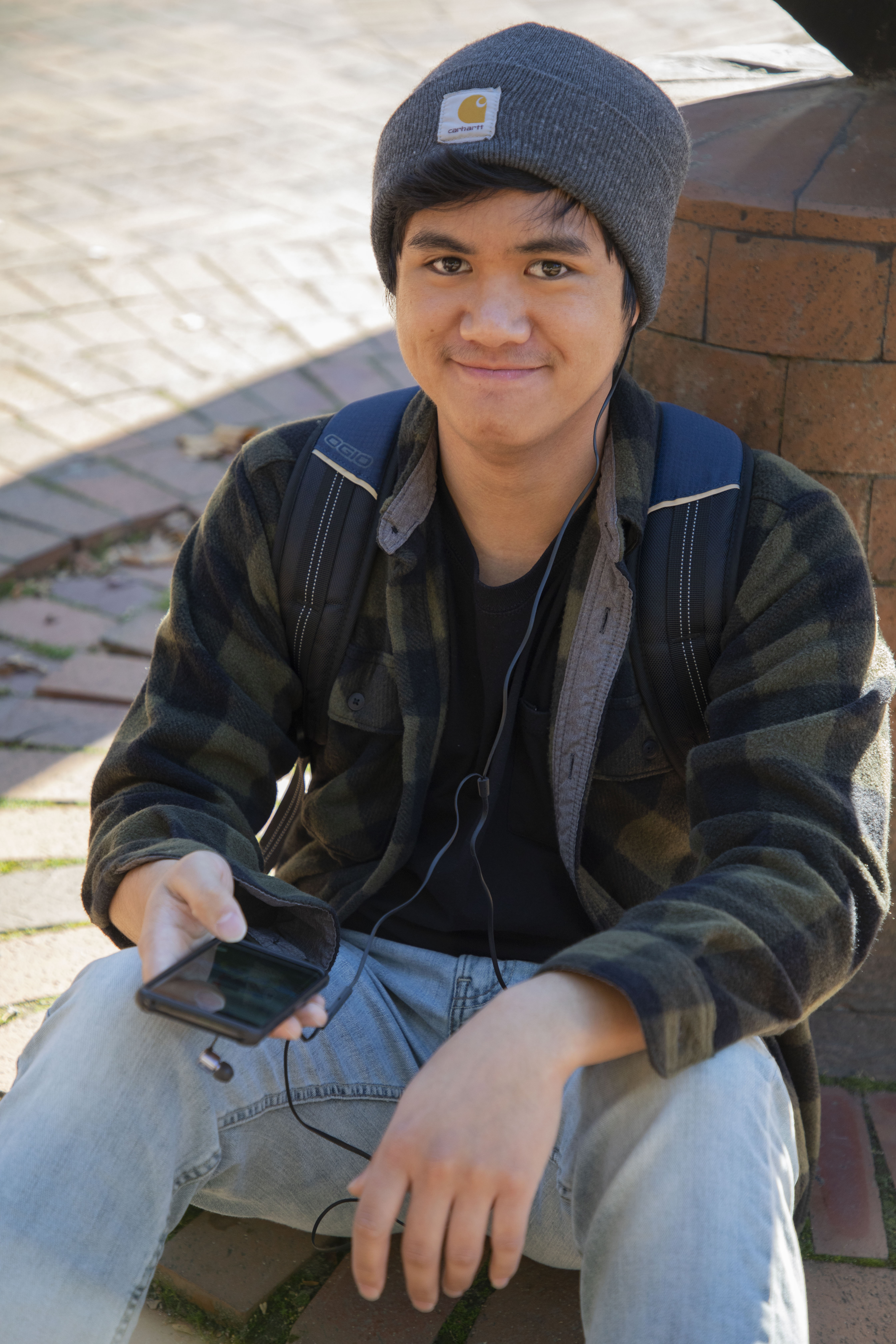Astrology sweeps Western students and faculty alike.
Jordan Casel, Junior, Doesn’t know sign
“I see it on Snapchat sometimes.” Ella Banken//AS Review
By Brooklin Pigg
Adapted from many different cultural backgrounds, astrology, the interpretation of the influence of celestial bodies on human life, has traveled from the newspapers’ horoscope sections to Instagram memes to Western’s campus.
In Design 351, senior Anna Hart asked her group members for their zodiac signs before they began their quarter-long project of creating a book.
“I’m kind of herding cats here and it will help me be more patient and be a better manager if I know these things about you,” Hart said she told them.
Much like a Myers-Briggs personality test or the Enneagram, astrology can lend someone to better understand themselves and the people around them, according to Hart. But she doesn’t think people take it as seriously since it’s associated with nature and old wives’ tales.
Dominique Coulet du Gard, senior lecturer and professor with Fairhaven College and the anthropology department, taught a class titled Cross Cultural Symbolic Reasoning last spring. In one section, students examined the cultural roots of astrology, and analyzed themselves in accordance with their sun, moon and ascendant signs.
“I think connecting to your authentic self includes the possibility of something like astrology,” Coulet du Gard said.
She views astrology as an introspective tool, a kernel of understanding that can lead to deeper reflection, as does Hart.

“It’s a fun hobby.” Ella Banken//AS Review
When Hart was 10, her mother introduced her to an astrologer who asked her to be his apprentice.
“I was 10 so I was like, ‘No, I don’t wanna do that,’” Hart said. “I could probably take him up on it now if the design thing doesn’t work out.”
The astrologer read her natal chart, the position of the planets during the time someone was born, when she was 14, but she didn’t retain most of it, she said. Even though she was exposed to it at an early age, Hart didn’t get interested into astrology until freshman year of college
“I was struggling a lot and was talking to my mom on the phone,” Hart said. “She had only gotten more into it, so she was the catalyst…This year, I’m fully diving into it.”
Associate professor of astronomy and physics Kristen Larson is neutral in her feelings toward astrology. But, like Hart, she was raised religious.
Larson was raised in the Christian church and said she values all of her experiences. Hart was raised Catholic, and, while she doesn’t identify as Catholic anymore, still believes in a lot of the positive teachings of the Bible.
Larson wonders if astrology is intertwined with the western culture’s complicated relationship with religion.
“I do believe God comes to us in times of great need, but we sometimes ascribe things to God that are very hard to defend,” Larson said. “So, I can understand people looking for some structure and some bigger plan want to divorce that from this idea of someone who’s up there, deciding you get to live and you don’t.”
The Christian share of the U.S. population is declining, while the number of U.S. adults who do not identify with any organized religion is growing, according to Pew Research Center. A 2016 study done by them found that feelings of spirituality in Americans are on the rise.
When students talk about spirituality, they’re really talking about connecting energy, Coulet de Gard said. They often initially come into the class referring to spirituality.
“But after thinking about it and talking about things like quantum physics or whatever, they’re like ‘Oh wait, yeah, everything’s constantly moving and changing, that’s the nature of reality, actually,’” Coulet de Gard said.

Astrology is not a science, but mathematical formulas can be and are applied. A recent New York Times article explains the math involved to become a certified astrologer. The International Society for Astrological Research’s certification of astrological proficiency exam includes chart calculations as well as ability to make future predictions.
“For it to be science, there has to be something that we can measure that can be repeated,” Larson said. “That’s not been done. The problem with that, though, is that human beings are really really good at seeing patterns…but it’s okay. It’s how we survive.”
Every morning, Larson drives from Lake Padden to Western, passing through three stop lights. On the days they are all green, she feels like she is about to have a good day.
“I don’t try to weed that out of my own thinking, like ‘Oh Kristin, that’s so unscientific.’ Partly because the joy of hitting all three lights green, I take pleasure in that,” Larson said.
Students resonate most with the idea of synchronicity, when there is a simultaneous occurrence with no causal relation but remain meaningful, according to Coulet de Gard.
“If you try to explain it from a western scientific point of view, then it’s not going to happen. You’re just going to say ‘It’s a coincidence,’ then that’s it, it’s random,” Coulet de Gard said. “And I believe, to some extent, in randomness and things like that, but as one species we’re all interconnected.”
Larson attributes confirmation bias, the tendency to seek out information that confirms pre-existing beliefs, as a contributor to a larger belief in astrology. She also mentions stereotype threat, when someone is conforming or at risk of conforming to stereotypes of their group, explaining a person’s association with their sign.
“Even though I know all of the scientific reasons why it does not matter where the distant stars were when I was born,” Larson said. “I do consider myself a Taurus.”

